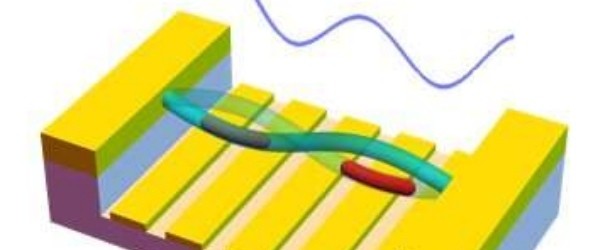Are Carbon Nanotubes New Viable Means of Storing Information for Quantum Technologies?

(Phys.org) Quantum information could be behind the next technological revolution. By analogy with the bit in classical computing, the qubit is the basic element of quantum computing.In a study published on 3 August 2021 in Physical Review X, an international research team consisting of CNRS researcher Fabio Pistolesi1 and two foreign researchers used theoretical calculations to show that it is possible to realize a new type of qubit, in which information is stored in the oscillation amplitude of a carbon nanotube.
These nanotubes can perform a large number of oscillations without diminishing, which shows their low level of interaction with the environment, and makes them excellent potential qubits. This property would enable for greater reliability in quantum computation.
Scientists successfully proved that this information could be read by using the coupling between electrons, a negatively charged particle, and the flexural mode of these nanotubes. This changes the spacing between the first levels of energy enough to make them accessible independently from other levels, thereby making it possible to read the information they contain. These promising theoretical predictions have not yet been verified experimentally.



















